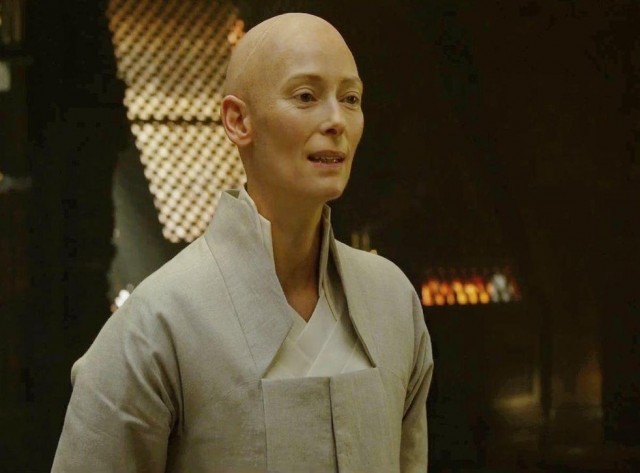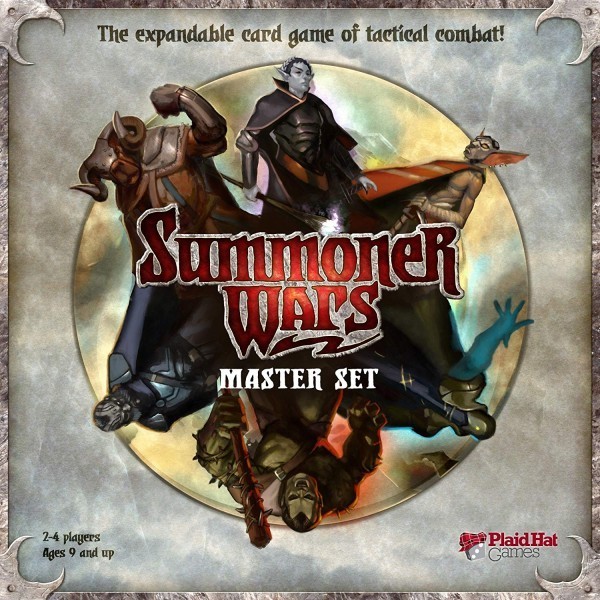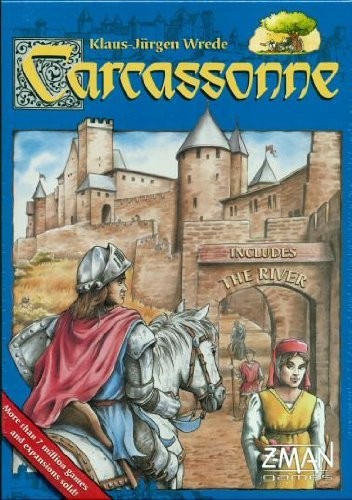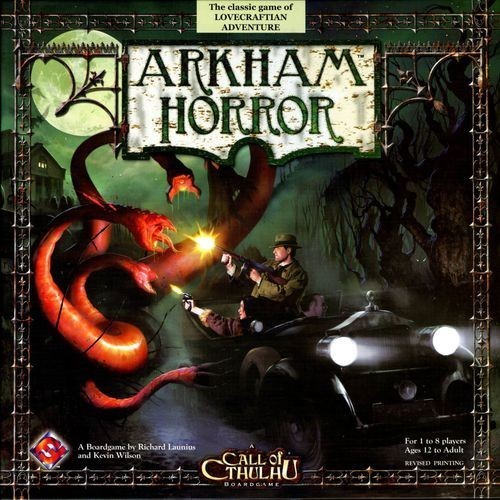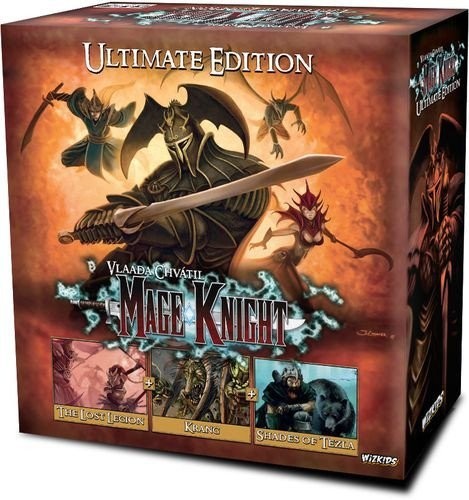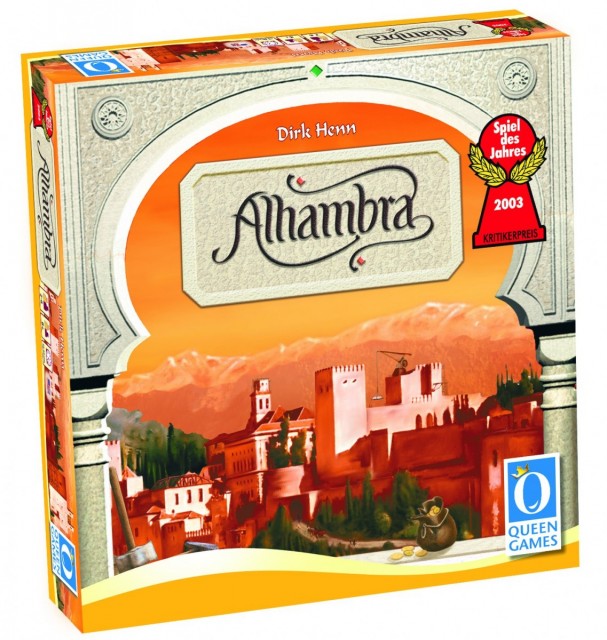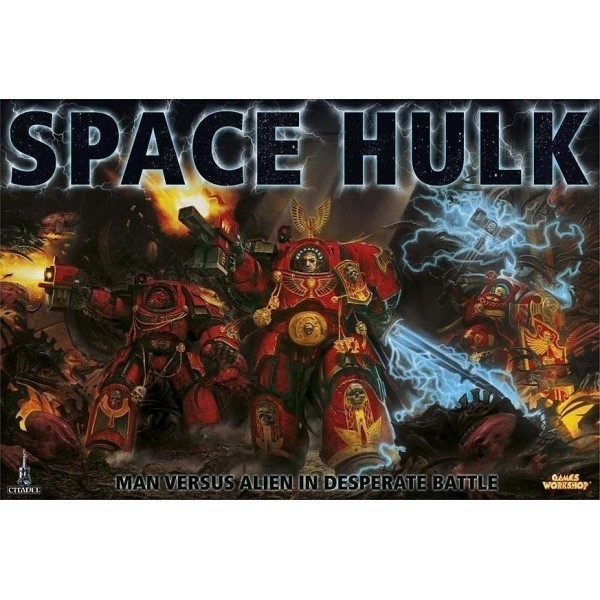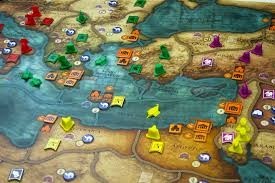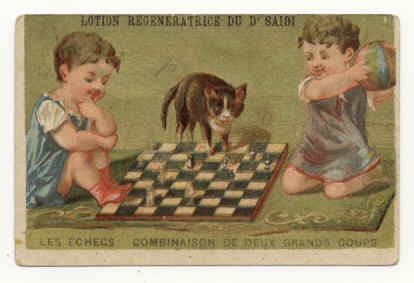 I have an amazingly poor record when it comes to finding bargain copies of games in charity shops. But about this time last year I came close - I found copies of Civilization and Kingmaker in my local charity shop. I didn’t buy either, the former being one very long game too many and the latter being something I already own. But what was particularly interesting about this experience was that both games were ones that any gamer worth his or her salt would recognise as being classic titles which are heavyweights in terms of both complexity and strategy, whilst the staff in the charity shop had stacked them with the children’s’ books, and the adult books were being kept company by any number of god-awful cheap shot party games and TV quiz show spin-offs. This demonstrates, I think, the perception in which board gaming is held by the general public: something that kids do.
I have an amazingly poor record when it comes to finding bargain copies of games in charity shops. But about this time last year I came close - I found copies of Civilization and Kingmaker in my local charity shop. I didn’t buy either, the former being one very long game too many and the latter being something I already own. But what was particularly interesting about this experience was that both games were ones that any gamer worth his or her salt would recognise as being classic titles which are heavyweights in terms of both complexity and strategy, whilst the staff in the charity shop had stacked them with the children’s’ books, and the adult books were being kept company by any number of god-awful cheap shot party games and TV quiz show spin-offs. This demonstrates, I think, the perception in which board gaming is held by the general public: something that kids do.
This reputation for immaturity seems to be unique to our corner of the hobby and seems to be a uniquely embarrassing thing to have to admit to. In years gone by when people asked me about my hobbies I was usually happy to answer “dungeons & dragons” or “miniature wargaming” without shame and the worst reaction I’d usually get was to be pigeonholed as an unusually talkative nerd - which probably isn’t far from the truth. Nowadays when people ask I tend to mumble something about “strategy games” and, if pressed, I pretend that I play a lot of Chess. And to really rub salt into the wound we’re all well aware that in many respects board gaming is in fact a rather more mature hobby than role-playing or miniatures - it’s more intellectually demanding and even those of us who, like me, glory in thick fantasy and science-fiction themes on their games will grudgingly admit that there are some pretty decent abstracts and games with non-nerd themes out there if you care to look. But of course the general public don’t know about these games and continue, unfairly, to treat us board gamers with undeserved suspicion.
Given this unfortunate state of affairs it’s hardly surprising that the board gaming community should react adversely to the labels slapped upon them. The trouble is that that reaction takes two particularly pernicious forms which are not merely unlikely to advance the situation in any way but are ultimately very destructive to the hobby itself. Indeed they could be seen as so ill-advised as to perhaps warrant the “immaturity” label after all.
The first is that it seems to bring out in some gamers a particularly zealous form of neo-religious conversion fervour which compels them to go out into the world and preach the gospel of board gaming to all who will listen and most who won’t. We’ve all come across gamers like this - the sort of people who will turn up at game club and anxiously state that they’ve been invited to a dinner party with their boss and his family and want to know what gateway games they should take and then, in spite of being told that the obvious answer is “none”, spend the remainder of the week loosing sleep over how they’re going to whittle down their short-list to just a car boot full of games. Indeed I suspect we all have a microcosm of this in us because we’d all like to find it a bit easier to find people to play against. But the social death which an admission of board gaming as a hobby usually seems to bring just flames this tendency to truly messianic levels in some people.
In spite of the fact that I can relate to the kernel of this particular behaviour I totally fail to understand the sorts of people who just keep pushing it. Some people, most people, don’t like and/or aren’t interested in games and that’s fine by me. If, in any given social situation, I get given the green light to wax lyrical about my hobby because the conversation happens to turn that way then great but I’m not going to be the first one to mention it. Why should anyone else take so much time and effort to go out of their way to convince them otherwise? But the religious metaphor that I’m using is actually pretty apt because the board game evangelicals seems unable to accept that what brings them joy won’t necessarily bring joy to others. And this in itself would not be a huge problem was it not for the fact that the behaviour is ultimately counter-productive and usually does nothing but entrench the opinion in targets of the sermon that board gamers are dangerous - and immature - lunatics who should be shunned at all costs, together with the games they’re trying to peddle.
I suspect that for most of you out there I’m not telling you anything you don’t already know. The other problem is something rather more subtle to get to grips with and was, in fact, my original inspiration in writing this article although the introduction seems to have run away with itself somewhat. The issue is that a lot of gamers seem to react to societies charge of “immaturity” by holding up the allegedly intellectual properties of board games like a shield against their scorn, and in doing so not only make themselves look pompous and inflated but within the hobby itself achieve nothing more than cause splits and divisions. Rather more so, I might add, than the sorts of divisions that I and some of my contemporaries have been accused of creating.
The argument is so well rehearsed that it seems almost pointless to re-hash it and it goes something like this: people in the wider world tend to regard people who focus exclusively on “lifestyle” abstracts like Chess and Go as being eccentric but extremely intelligent. Many of “these games of ours” are either just as demanding as said abstracts or, at the very least, are nearly so. Therefore if we focus on the intellectual properties of our favourite games to the exclusion of all else, we’ll feel better about ourselves and maybe, just maybe, people in society at large will start treating us with the same level of respect that the players of said abstracts get. Right?
Wrong.
Before we even come on to the problems this can cause within the hobby itself, it’s worth taking time to recognise that this line of thinking is deluded. For starters it’s never going to work on wider society because most of them don’t even know that hobby board games exist, let alone care, let alone be bothered in taking the time to recognise that it is, in fact, a pretty challenging pursuit. The credibility gap is just too wide to try and bridge with that is effectively only a fraction of an actual bridge: people would have to be more aware of hobby games before they started taking arguments about intellectual exercise at all seriously. The other reason that it’s deluded is because it’s based partly on a false premise: abstracts make good candidates for the intellectual excuse because they look classical rather than geeky. And yet I’ll bet that every single gamer who’s trotted out the “intellectual” argument owns and enjoys at least one fantasy or science fiction game. Which isn’t to say that games with fantasy or science fiction games can’t be intellectual but as soon as a hobbit pops up, no-one outside the inner circles of geekdom is going to accept that these games have a shred of credibility about them.
It also needs to be recognised that it’s deeply hypocritical. One way in which the typical condescending manner of the average non-gamer responding to a revelation of gaming could be described is as a form of snobbery. And of course trying to claim in the face of this attitude that what you’re doing is actually deeply important and rewarding because only those with the intellectual capacity of Bobby Fischer can possibly enjoy it is just fighting fire with fire. Because it is in itself a form of snobbery, just like every other form of snobbery it tends to engender poor reactions in people who encounter it and don’t agree. And the important point here is not just that the people who “don’t agree” will include virtually every non-gamer on the planet (thereby rendering this approach to the problem as self-defeating as the evangelical one), but that it also includes a significant amount of gamers. For those of us, like me, who don’t agree, this attitude is enormously problematic and irritating. Effectively I’m being told that just because most of my favourite games aren’t mathematically rigorous, I’m a second-class citizen in the gaming world. Can you possibly imagine an attitude that’s more potentially divisive than that?
The problem is exacerbated because the guilty parties here are often totally unaware that what they’re doing has the potential to make people damn angry. This isn’t the social blindness exhibited by the evangelicals but a much simpler inability to re-read what they’ve written and see that if you’re on the other side of the fence it sounds tremendously patronising. I’m not going to go on at length about that because that particular inability to appreciate how other people might read your proclamations is something that I’m certainly as guilty of as the next man, even if I do strive not to be a gaming snob.
It’s also, of course, the root cause of fun-murdering, that contemptible attitude which forgets that “fun” is a subjective experience which differs between different people and insists that only games which are intellectually demanding can possibly be worthwhile. This wilfully ignores the fact that most people play games to relax and have a good time. And if you can recognise that recreation is the primary purpose of game playing to the majority of people the world over, you should also be able to see that this leads us directly back to where we came in: wanting to have fun all the time is immature and the perception of immaturity is embarrassing. This is, of course, a square circle: nearly everyone plays games or wants to have fun some of the time, so judging a game player simply because of the manner in which they choose to have fun is hypocritical. Surely this - or a variation on it that doesn’t use the word “hypocritical” - is actually the best way to bridge the credibility gap? Help other people to see that we’re just doing the same as everyone else but in a different way? And in doing so we can, hopefully, not only help improve the image of gaming as a hobby but put down gaming snobbery once and for all: a loop of positive feedback that can do nothing but good for gamers and non-gamers alike.
 Matt is the founder of Fortress: Ameritrash. He is also a regular columnist for Board Game News.
Matt is the founder of Fortress: Ameritrash. He is also a regular columnist for Board Game News.
 Games
Games How to resolve AdBlock issue?
How to resolve AdBlock issue? 

